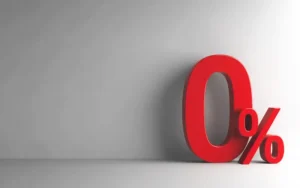What Is Zombie Foreclosure?
When a homeowner defaults on their mortgage and either chooses to leave the property for other reasons or wrongly thinks they must move out right away after getting a notice of foreclosure, it’s known as a zombie foreclosure. The former situation is more typical in that the homeowners still have title to the property but incorrectly think that the foreclosing lender is now in charge.
For instance, suppose a homeowner leaves their property after defaulting on their mortgage, but the lender doesn’t finish the foreclosure process, leaving the original homeowner with title. The driveway, grass, and other areas of the property are neglected when vacant for a prolonged period of time. Consequently, the property’s condition deteriorates, raising worries about safety and producing an image that could depress property prices in the neighborhood.
The Process of a Zombie Foreclosure
A homeowner’s misperception of the foreclosure procedure leads to a zombie foreclosure. When a foreclosure occurs, the homeowners usually become aware that the property is going into foreclosure from the organization with the delinquent mortgage.
After receiving this notification, the homeowners have a required waiting period, during which time they may prevent the house from going into foreclosure by making a sizable lump payment. The amount due could be as little as a few arrears or as much as the entire mortgage debt that the homeowners are responsible for.
The homeowner retains ownership of the property until a foreclosure is completed. The process continues, and a court will decide that the lender owns the property if the homeowners fail to pay the lump payment. The homeowners are only required to leave the house after this time, at which point it officially becomes the lender’s property.
Zombies accounted for 3.8% of all foreclosures in the fourth quarter of 2020, but generally, according to ATTOM Data Solutions, they have decreased by more than half since 2016.1.
A lender may choose to refrain from foreclosure for various reasons, including the high cost of fixing the property and paying overdue property taxes. The lender is not required to inform the homeowner that they will not assume property ownership. This kind of situation, where the original homeowner (who often has yet to learn that the foreclosure process was not finished) still has title to the house in zombie foreclosure, is referred to as a zombie title.
The Effects of Zombie Foreclosures on Homeowners
A poor scenario (default on a mortgage) is made worse by zombie foreclosure, affecting the homeowner and the whole community. When a homeowner vacates their property after getting a notice of foreclosure, they do so without considering the financial and legal consequences of their actions or the information itself.
In most cases, the owner of a zombie foreclosure is still in charge of paying property taxes, homeowners association (HOA) dues, and upkeep.2. Simply because someone has left their house does not absolve them of these obligations. Local government agencies may eventually try to recoup unpaid property taxes or fees or assess maintenance costs for the owner.
Homeowners who have fallen behind on their mortgage and are facing foreclosure should remain in their houses until they get formal notice to leave to mitigate the effects of a zombie foreclosure. They should next confirm that the property’s title is no longer in their name by following up.
The Meaning of “Zombie Foreclosure”
A zombie foreclosure occurs when a homeowner receives notice of impending foreclosure and leaves their home before it is required by law. Homeowners are responsible for paying their taxes and property insurance since foreclosure might take a while. When a homeowner vacates their property and enters zombie foreclosure, it often indicates that the residence may become dilapidated.
How Will My Credit Affect a Zombie Foreclosure?
A zombie foreclosure will affect your credit because you default on your loan when you walk away from your mortgage.
What Is the Location of Zombie Foreclosures?
While foreclosures may occur in any state, lower-class neighborhoods are often the site of zombie foreclosures. The conditions with the highest number of zombie foreclosures are in the Northeast and Midwest, according to a Q1 2022 analysis from ATTOM Data Solutions.3.
As to the name “Zombie Foreclosures,” why?
Because a homeowner who gets a notice of default also experiences a zombie foreclosure. The foreclosure process has begun with these documents. The house may remain unoccupied and deteriorate if the mortgage holders depart before the bank forecloses.
Conclusion
- When a homeowner has missed payments on their mortgage, gets notice of foreclosure, and assumes they must leave their property, it’s known as zombie foreclosure.
- Until the foreclosure procedure is finished, the homeowner retains title to the property and is in charge of its maintenance.
- An unoccupied, abandoned home may reduce property values, so a zombie foreclosure can pose issues for the whole community.
- In the US, zombie homes were typical during the 2008 financial crisis, which disastrously affected the housing market.












































